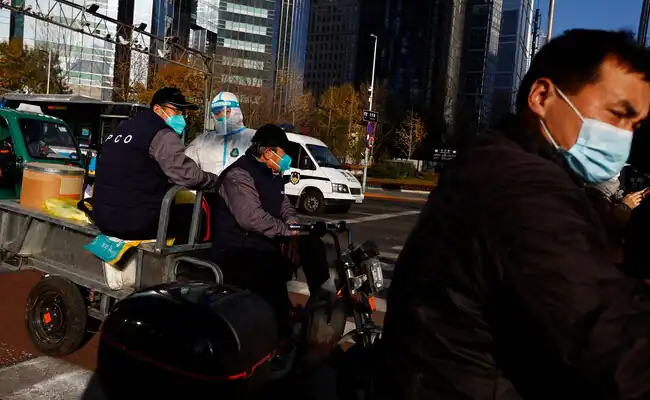Beijing shut parks and museums on Tuesday and Shanghai tightened rules for people entering the city as Chinese authorities grapple with a spike in COVID-19 cases that has deepened concern about the economy and dimmed hopes for a quick reopening.
China reported 28,127 new domestically transmitted cases for Monday, nearing its daily peak from April, with infections in the southern city of Guangzhou and the southwestern municipality of Chongqing accounting for about half the total.
In Beijing, cases have been hitting new highs every day, prompting calls from the city government for more residents to stay put and show proof of a negative COVID test, not more than 48 hours old, to get into public buildings.
Late on Tuesday, financial hub Shanghai announced that from Thursday people may not enter venues such as shopping malls and restaurants within five days of arriving in the city, although they can still go to offices and use transport. Earlier, the city of 25 million people ordered the closure of cultural and entertainment venues in seven of its 16 districts after reporting 48 new local infections.
The wave of infections is testing recent adjustments China has made to its zero-COVID policy, aimed at making authorities more targeted in clampdown measures and steering them away from blanket lockdowns and testing that have strangled the economy and frustrated residents nearly three years into the pandemic.
“Some of our friends went bankrupt, and some lost their jobs,” said a 50-year-old Beijing retiree surnamed Zhu.
“We can’t do many activities we intended to do, and it is impossible to travel. So we really hope that the pandemic can end as soon as possible,” she said.
Health authorities attributed two more deaths to COVID-19, after three over the weekend, which were China’s first since May.
Even after the adjusted guidelines, China remains a global outlier with its strict COVID restrictions, including borders that remain all-but-shut.


